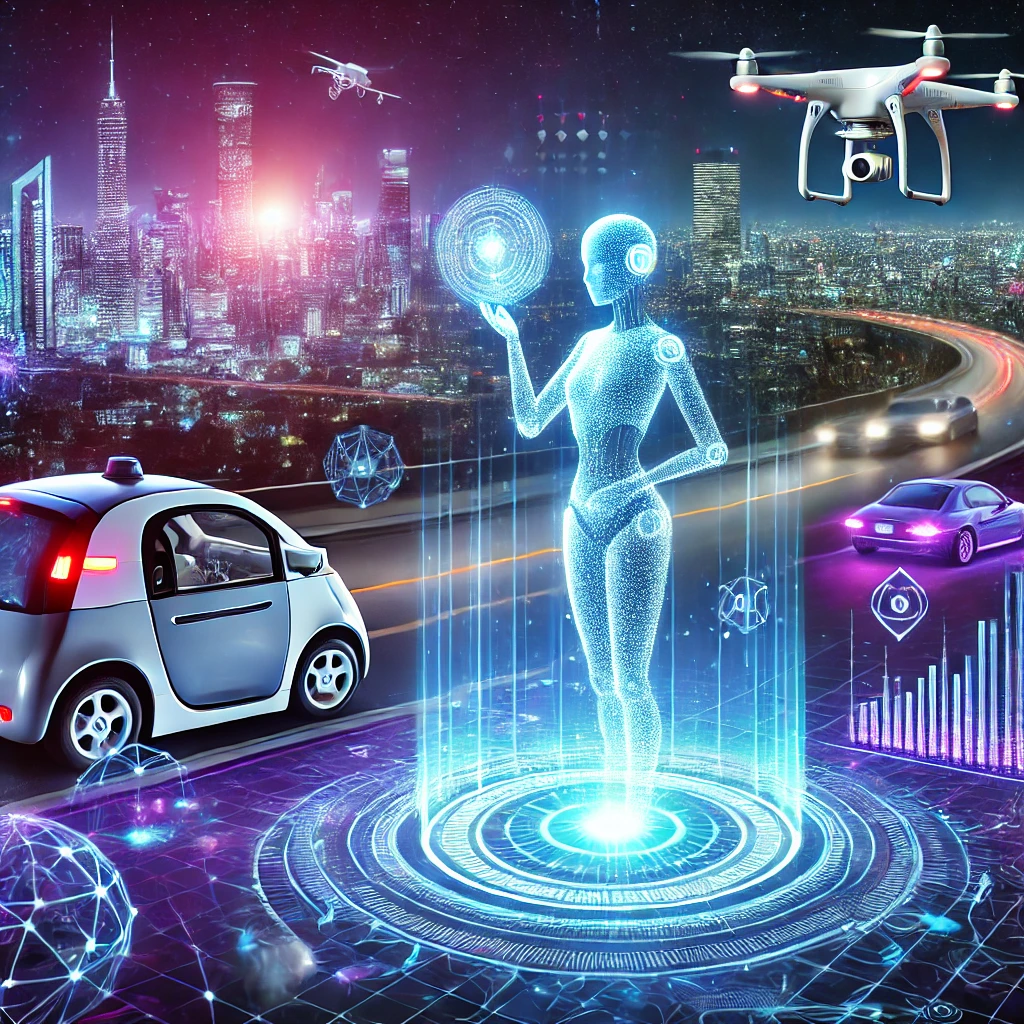Artificial intelligence (AI) is no longer a futuristic concept—it is actively shaping the world around us. From self-driving cars to advanced chatbots, AI is revolutionizing industries and changing the way we live and work. But what does the future hold for this powerful technology?
The Rise of AI in Everyday Life
AI is already embedded in our daily routines, often in ways we don’t even realize. Voice assistants like Siri and Alexa use AI to understand and respond to commands. Streaming services such as Netflix and Spotify analyze our preferences to recommend movies and music. Even healthcare is benefiting from AI, with algorithms detecting diseases more accurately than ever before.

How AI is Transforming Industries
AI is making a significant impact across various industries, improving efficiency, accuracy, and decision-making.
1. Healthcare
AI-powered tools can analyze medical data, assist in diagnosing diseases, and even predict patient outcomes. Robotics and AI-driven surgeries are also becoming more precise, reducing risks for patients.
2. Business and Marketing
Companies are using AI to personalize customer experiences, automate repetitive tasks, and improve decision-making. Chatbots provide instant customer support, while AI-driven analytics help businesses understand consumer behavior.
3. Education
AI is changing the way students learn by offering personalized education plans, virtual tutors, and AI-assisted grading. It allows teachers to focus on more interactive and creative aspects of education.
4. Transportation
Self-driving cars and AI-powered traffic management systems are set to revolutionize transportation, reducing accidents and making travel more efficient. Companies like Tesla and Waymo are leading the charge in autonomous vehicle technology.
The Ethical Concerns of AI
With great power comes great responsibility. AI raises ethical concerns, including job displacement, data privacy, and biased decision-making. There is also the question of how much control AI should have over critical decisions, such as in warfare or law enforcement. Governments and organizations must work together to create ethical guidelines for AI development.
What’s Next for AI?
The future of AI is full of exciting possibilities:
• General AI: AI that can perform any intellectual task a human can, rather than just specialized functions.
• AI in Space Exploration: AI is being used to analyze vast amounts of data from space and assist in deep-space missions.
• Human-AI Collaboration: Instead of replacing humans, AI will work alongside people to enhance productivity and creativity.
Final Thoughts
Artificial intelligence is transforming the world at an unprecedented pace. While it presents challenges, its potential benefits are immense. The key is to develop AI responsibly, ensuring that it serves humanity in the best possible way.
What do you think about AI’s future? Share your thoughts in the comments below!
Published by: VisionTech Insights